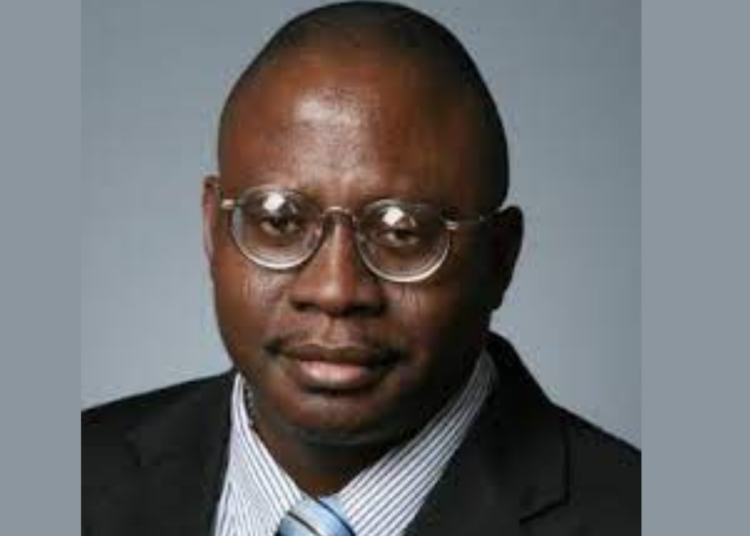I’ll start with the “love-fest”, so to speak: Bayo Onanuga, ex-African Concord editor and co-founder of TheNews magazine group is a senior journalism colleague I have long admired, and very much so. As a fellow journalist, he has stood as a beacon to many in the profession for many years, with his brand of courageous and fearless journalism serving as an exemplar to which many in the profession have long aspired, including my good self.
Bayo Onanuga’s quality, courage and foresight as a journalist are uncommon and very exemplary. Anyone (like yours truly) who witnessed and / or was somehow thrown into the thick of the struggle to preserve and enthrone democratic norms in the unfortunate aftermath of the annulment of the June 12, 1993 presidential election won by Bashorun MKO Abiola will not quickly forget the exceptional courage and endless zeal for pursuit of the truth demonstrated by Onanuga and the other journalists he led directly then at TheNews and subsequently at Tempo magazine. This was during the titanic struggle to actualize the mandate then military dictator Ibrahim Babangida and his co-traveller / successor Sani Abacha frenetically sought to deny MKO Abiola, especially in the early days of that annulment.
Such is the respect and admiration—even love—that I had, and still retain, for Onanuga as a person and a senior journalism colleague that years after I passed on an opportunity in the mid-90s to work for a newspaper floated by him (Onanuga) and others at the time, I carried for a long time the “guilt” of “disappointing” this journalism titan I still hold in much awe, despite the fact that I had very good reasons then to choose not to work for my hero and pursue another opportunity that presented itself at the time.
Decades later, just as Bola Ahmed Tinubu is on the cusp of being sworn-in as Nigeria’s duly-elected President, an achievement denied MKO Abiola about 30 years ago, it is really disappointing that this journalistic hero of Nigeria’s democracy journey has chosen such an auspicious moment to let down many who look up to him.
Onanuga, who currently serves as the Director of Media and Publicity of the Presidential Campaign Council of the ruling All Progressives Congress (APC), a party that has just run a successful presidential campaign, put more than a foot in his mouth when he recently tweeted that members of the Igbo ethnic group in Nigeria, specifically those residing or domiciled in Lagos, had to stop their “interference in Lagos politics”.
Hear Onanuga, in full: “Let 2023 be the last time of Igbo interference in Lagos politics. Let there be no repeat in 2027. Lagos is like Anambra, Imo, any Nigerian state. It is not No Man’s Land, not Federal Capital Territory. It is Yoruba land. Mind your business”. Even worse, after the first wave of criticisms hit his first incendiary comments, Onanuga doubled down on his divisive vitriol, in the process disappointing those admirers who initially believed his Twitter account had been hacked or that he had been defamatorily-misquoted. Hear Onanuga, again: “Let me make myself abundantly clear: the views I express on Twitter are my personal views. I don’t owe anyone any apology for addressing the existential threats of our people. I am after all, first of all a Yoruba, before being a Nigerian”.
Onanuga’s unfortunate statements undoubtedly have roots in the tension-soaked run-up to the just-concluded governorship election in Lagos State, where the ruling All Progressives Congress has held unquestioned state-wide power during the past 24 years. This hold seemed to come loose, however temporarily, when Bola Tinubu lost the presidential election conducted there on February 25th to the presidential candidate of the Labour Party, Peter Obi, who also happens to be a member of the Igbo ethnic group. This moment, when the APC in Lagos literally saw its political life flash before its eyes, unleashed a gubernatorial campaign like no other in Lagos from late February up to the election for the governorship seat that held in the state this past March 18th.
Those weeks of campaigning were soaked in enormous ethnic baiting and vitriol, mostly directed against members of the Igbo ethnic group in Lagos. The Labour Party’s candidate in that governorship election, Gbadebo Rhodes-Vivour, was cast as an Igbo Trojan horse being controlled by others to take over the prime real estate of Lagos State from its Yoruba “indigenes” to whom it rightly belongs.
So, even though Onanuga’s tweets could be likened to a “loud, written sigh of relief”, coming as they were when it seemed certain Rhodes-Vivour would be defeated in his bid for the Lagos governorship, they were certainly not the appropriate “words of celebration” from this otherwise-very rational and courageous journalist whose career has served as an inspiration to many.
Onanuga of all people is very familiar with the role certain Igbo personalities played (I’m sure he won’t now characterize those as “interference”) in the struggle to actualize the mandate given to MKO Abiola in the aftermath of the June 12, 1993 presidential election. Surely, names like Rear Admiral Ndubuisi Kanu, Commodore Ebitu Ukiwe (incidentally both former military governors of Lagos State), Chief Ralph Obioha, Dr. Chukwuemeka Ezeife, Professor Anya O. Anya, Chief Empire Kanu and others should mean something to Onanuga.
These were all distinguished Igbo personalities who were co-founders of the National Democratic Coalition (NADECO), the body used to prosecute the titanic battle to actualize MKO Abiola’s June 12 mandate, and whose members all suffered significant personal losses and inconveniences—even numerous attempts on their lives—when the fearsome Sani Abacha regime ruthlessly hunted and haunted those NADECO members, without caring about their ethnic origins.
I have no doubt the likes of the late Rear Admiral Ndubuisi Kanu now turn in their graves at Onanuga’s diatribe against members of the Igbo ethnic group in Lagos.
Then there are the numbers too, which are an important feature of any participatory democracy such as the one Nigeria has been trying to build since the onset of the Fourth Republic in May 1999. Although figures from Nigeria’s National Population Commission (NPC) appear scant or even non-existent on that specific demographic, authoritative projections put the percentage of the Igbo population in Lagos at between 30 to 45 percent, with larger concentrations in certain parts of the Lagos metropolis than others.
Having been born and bred, so to speak, in Lagos myself, I know for a fact that the number of Igbos domiciled in Lagos is anything but insignificant. Despite the “historical tensions” many ascribe to the dynamics of Yoruba / Igbo interactions in Lagos, I recall that for the many years I resided as a child and young adult in my father’s house in the Mafoluku-Oshodi area of Lagos (starting in 1972, when I was soon to be a four-year old), the percentage of tenants that resided in the house was almost always 60 to 40 percent, in favour of the tenants of Igbo origin.
My father definitely had nothing against his fellow Yoruba but the statistics of his tenancy almost always favoured Igbo tenants. That, in itself, is instructive of a reliable projection regarding a steady increase in the Igbo population of Lagos over that timespan, and which further validates the numbers that place the Igbo population in Lagos at very significant levels.
Significant enough, in fact, to make Onanuga’s bombastic assertion about Igbo “interference” in Lagos politics all the more wince-inducing and baffling. Surely a potential voting bloc of almost half in a state’s total voters’ pool cannot be told to refrain from “interfering” in the very important process that determines those who rule over them and make important decisions on their behalf every four years.
Alas, the old saying has proven itself true again: your heroes often disappoint you in ways you’d never anticipate, so make sure to always avoid meeting them and admire them only from “afar”. Still, for all of us out there who will always respect and remain in awe of Onanuga’s achievements as a journalist—especially his towering role in the entrenchment of the democracy all Nigerians now enjoy, irrespective of ethnic or other backgrounds—we will continue to believe that this recent glitch in the remarkable trajectory of a wonderful career would prove to be only a temporary disappointment.
Afterall, Bayo Onanuga is only human, like the rest of us.
–Soboyede is a journalist and attorney
We’ve got the edge. Get real-time reports, breaking scoops, and exclusive angles delivered straight to your phone. Don’t settle for stale news. Join LEADERSHIP NEWS on WhatsApp for 24/7 updates →
Join Our WhatsApp Channel










